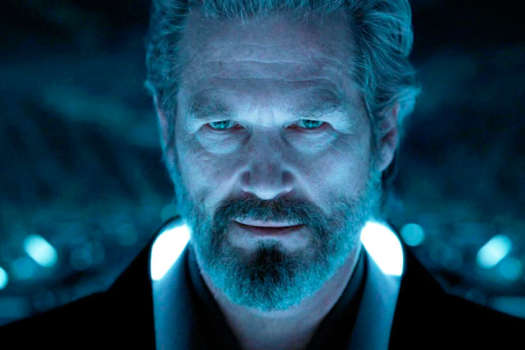Here's a humble genre curiosity from Germany with a few big, though not fully baked, ideas. After opening with a travel ad that looks like an allergy medication commercial, we're introduced to the concept that Earth has been rendered uninhabitable and people now live in giant space station cities, gravity provided by centrifugal force and, presumably, paid for by RE/MAX, who've got some pretty prominent branding on the station. This is only a temporary solution during humanity's migration to the planet Rhea, but only those with enough coin can afford the trip. Laura Portmann takes a medic gig on a cargo ship in order to fund the move to live with her sister on idyllic Rhea. We rejoin Laura after nearly four months of cryo-sleep when her duty shift begins. In less time than it takes to pan over the poorly executed CGI of the ship's rocket thrusters (a recurring visual, which trimming could've shaved ten to 15 minutes off the film's runtime), Laura is investigating the cargo bay airlock, where she sees a man's hand on the window. There's a Sky Marshal ― in space? I hope it's a translation thing ― on board due to increased Luddite terrorist activity, so it's not too difficult to make assumptions about how certain plot points might unfold. Obviously under heavy budgetary constraints, the small team of writers and directors credited with creating Cargo try to shoehorn a number of ideas into a world and characters not relatable enough to draw viewers' empathy. Stiff acting and some absolutely nonsensical plausibility derail what is otherwise quite a decent attempt at hard, measured sci-fi. But you can't have hard sci-fi with soft logic, so small points like the cryogenic fluid harming a guy's hand when he reaches into it, but being perfectly safe any other time numerous bodies are submerged in it overwhelm the credibility of the bigger concepts being sold. The mysteries of the cargo bay are deep enough to hold a few surprises, but the execution is nowhere near the calibre of its obvious influences (Sunshine, The Matrix) or stories that have covered the same ground with much more ingenuity and rational (if you've seen Dollhouse's "Attic" episode, you're already familiar with Cargo's coolest idea). It possesses a few charms mixed with its woeful idiocy, but the grandest ideas Cargo holds can be better experienced elsewhere. No features are included ― just avoid the horribly voiced English dub track.
(Mongrel Media)Cargo
Ivan Engler and Ralph Etter

BY Scott A. GrayPublished Dec 13, 2010



